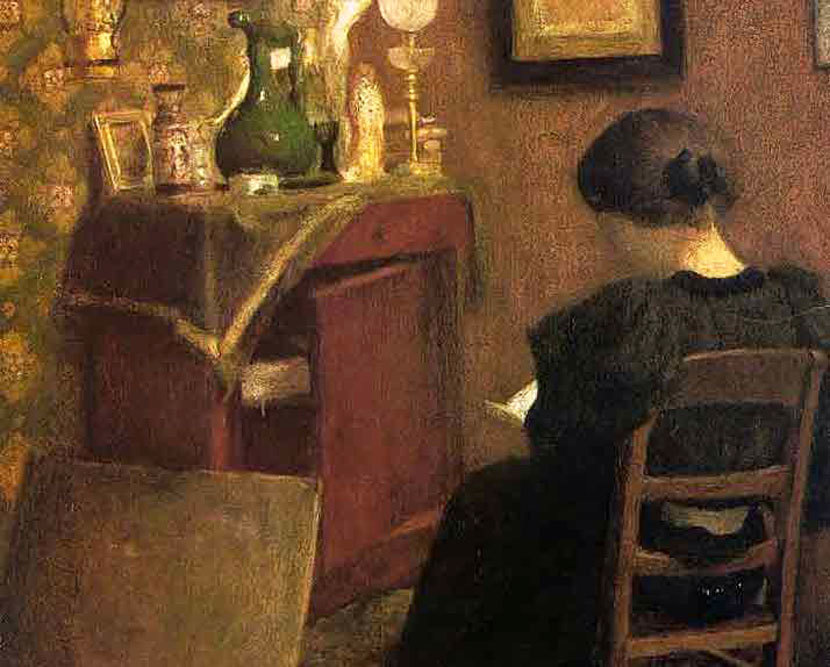Constance Fenimore Woolson (1840–1894)
From Constance Fenimore Woolson: Collected Stories

In recent decades the novels and stories of Constance Fenimore Woolson have received renewed attention from scholars, critics, and readers. Although forgotten for most of the twentieth century, her works enjoyed not only critical esteem but also commercial success of a kind her male rivals (and friends) Henry James and William Dean Howells seldom attained. When she died in Venice in 1894 at the age of fifty-three, having jumped or fallen out of a third-story window, she was memorialized in all the major American papers, compared with George Eliot, Jane Austen, and the Brontës as one of the greatest women writers in English.
Next month Library of America will issue a collection of her best short stories. When, with the help of the volume’s editor (and Woolson biographer) Anne Boyd Rioux, we were collating the selections, several of us noticed that one story in particular—“Miss Grief,” the Woolson selection that has received perhaps the most attention in the last quarter century—vaguely reminded us of a certain famous story by Herman Melville.
We found we weren’t alone. Several recent scholars have noted the similarities between “Miss Grief” and “Bartleby the Scrivener.” For example, Syracuse professor Dorri Beam has written, “In ‘Bartleby,’ the narrator functions as a kind of straight man who keeps coming back, asking the irrational Bartleby to be rational. This is the case with ‘Miss Grief’ as well; the narrator keeps returning to the utterly earnest writer, asking her to be, in effect, self-critical, canny and conventional—to pitch and alter her writing for the literary market.” But, in the end, “Miss Grief” would prefer not to.
Yet “Miss Grief” is no pastiche. Set far away from Wall Street, in the quiet drawing rooms of authors and editors, the story weighs the tensions between an established male author and a “new” female writer, the clash between style and substance, and the competing expectations of readers and critics. “Besides that,” Rioux says, “it is a delight to read.” We present it here as our Story of the Week selection.



